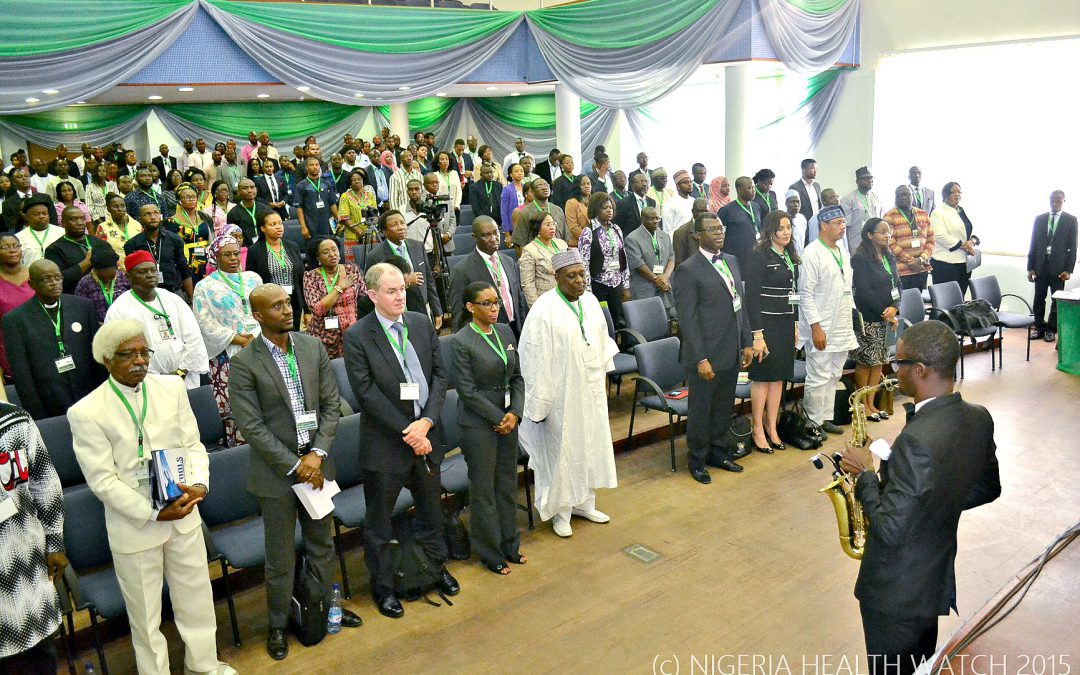On the 18th of June 2015, at the Shehu Yar’adua Centre in Abuja, about four hundred Nigerians passionate about their health sector gathered for “Future of Health”. It was a conference organised by Nigeria Health Watch to help chart the agenda for health under the new administration. Our speakers were all provocative and thoughtful, drawing from their deep knowledge of various aspects of the Nigerian health system.

Clare Omatseye argued that Nigeria needs a greater and smarter use of technology to tackle the challenges facing the health sector, pointing out that the health sector is stuck in an analogue world, while patients have already arrived in the digital world. Remi Adeseun called for multidisciplinary training of all health professionals to reduce the rivalry and frequent strikes in the sector. Dr Dayo Adeyanju, commissioner for health in Ondo State, shared lessons from the Abiye Safe Motherhood Programme and how the state’s award-winning maternal and child health programmes had led to large reductions in maternal mortality, lessons that every new commissioner for Health in Nigeria should be learning. Dr Olaokun Soyinka, immediate past commissioner for health in Ogun State, called on Nigerians to hold politicians more accountable for failures in the health system and stop assuming that it was God’s will when such failures occurred. Of what use is a two bed hospital, Dr Femi Sunmonu asked, seeking improved quality through a systematic overhaul of both private and public health institutions, referring to his own journey through the quagmire of health service delivery and health financing.
Nnenna Ihebuzo reminded us of the work that was already happening to improve primary health care but also showed that availability did not match need. She advocated for one primary health care centre in every ward in Nigeria. Iko Ibanga reminded us that while we build our health systems, some problems cannot wait and, for these, there are simple interventions that can be delivered by people that care. His organisation ProHealth International has shown that many Nigerians do care and are willing to volunteer their time and skills.

Prof Shima Gyoh shared from his rich years of experience. He highlighted the weakness of regulatory oversight in the health sector and the consequent impact on the health of Nigerians, adding that frequent changes in the leadership of the regulatory organisations only made things worse.

Fola Laoye of Hygeia lamented the fact that 10 years after the launch of the National Health Insurance Scheme, coverage remained extremely poor. She further noted that the scheme had never been audited or presented public accounts throughout its history.
Rob Yates of Chatham House argued that Nigeria could afford Universal Health Coverage. Then, he suggested that President Buhari could make himself a hero of the Nigerian people if he was bold enough to implement it during his tenure.

Strengthening primary care, working in partnership, building systems and accountability were recurrent themes, with Dr Muhammad Pate stressing that nothing would change unless Nigerians all play their part in demanding accountability at all levels in the health sector. Dr Pate’s comments followed the launch of our #OpenMOH campaign for a more transparent and open health sector – at local government, state and federal levels.

We will over the next few weeks make the talks by each speaker available in order to spark wider discussion. We also intend to compile the deliberations to be shared with all relevant individuals and groups in the health sector. Through “Future of Health”, we hope that we have sparked a conversation that will not end, until our ministers, commissioners and heads of parastatals realise that they are fully accountable to us; until doctors, pharmacists and nurses put the patient back at the centre of care. We hope to inspire and embolden ourselves to ask hard questions of our leaders and health care workers.
For those that made it to the Shehu Yar’adua Centre, we are deeply grateful for your time and commitment and please forgive any inadequacies in the organisation; we will strive to improve. For those that were not able to connect to our livestream, we are deeply sorry; we did our best but it was not good enough. We take full responsibility and will strive to improve. To all our partners (Society for Family Health, JNC International, TY Danjuma Foundation, ProHealth International and Shell Petroleum Development Corporation), supporters and friends, stay with us to build the health sector of our dreams.
What can you do? You can join our campaign for accountability in our health sector by telling us about your positive and negative experiences in the Nigerian health sector. If you know someone or an organisation doing good work, we want to know. If you had a bad experience, we are also interested in your story. We are building a database of contributors to our blog, and, if you feel you have something to contribute on a topic of relevance to the Nigerian health, we would love to hear from you.
Above all, play your part as a citizen, demand for better health care. Here at Nigeria Health Watch, we will strive to continue to support you with the information and means to do so. We will convene again in a year’s time to assess progress on the state of our health sector.



